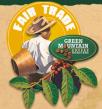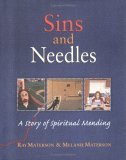 If world travel to exotic destinations this summer is too expensive for you, check out this web site recommended by CS Monitor. Arounder offers impressive virtual tours of some of Europe’s most popular destinations. With exceptional panoramic imagery, mood-setting audio files, and mildly educational narration, Arounder is pretty much the next best thing to being there.
If world travel to exotic destinations this summer is too expensive for you, check out this web site recommended by CS Monitor. Arounder offers impressive virtual tours of some of Europe’s most popular destinations. With exceptional panoramic imagery, mood-setting audio files, and mildly educational narration, Arounder is pretty much the next best thing to being there.
The Next Best Thing to Being There: Virtual Tours of Europe
Good Neighbors Come in All Income Brackets
 [Anonymous author] It is not common to hear good news about Espanola, New Mexico, so I thought I would share this story about neighborly generosity.
[Anonymous author] It is not common to hear good news about Espanola, New Mexico, so I thought I would share this story about neighborly generosity.
A few weeks ago, on a Saturday evening when we were not at home, a car came around the corner and knocked down about 25 feet of the coyote fence in the back of our house.
A week later, after breakfast, we noticed a car parked by the broken fence and a man and a woman were throwing new latillas up on the rocks in our yard. We thought to ourselves that the people who knocked the fence down had decided to fix it. But when we went out to speak to them, they told us that they had noticed what good care we took of our property and that we had even put a bench on the corner for the children to use while they waited for the school bus and God had told them that they should fix the fence for us.
Although these people lived in the HUD Housing Development up the road from our property, they wouldn’t even allow us to pay for the materials they would use. And so a few days later, we had our fence all repaired and although we have told as many people as possible about their wonderful neighborliness, they will not permit us to tell anyone their names. Isn’t it amazing how often the people with the least amount of wealth, are so willing to give of what little they have and to give so freely of their time and effort? We are very grateful to have such kind, thoughtful neighbors.
Hospital for our Injured Feathered Friends
Check out this wildlife rehabilitation story submitted by Cindy, a Good News Network member (User name, carb101) from MSNBC:
G is for Gardening
 EDITOR’S BLOG
EDITOR’S BLOG
Instead of revitalizing my readers today with more good news — and I have a pile of stories waiting to be written-up and uploaded — I decided to revitalize the flower beds around our house. It was a gorgeous day and in the process I ended up revitalizing myself!
Gardening is great exercise, to be sure, and it leaves you with a great feeling, especially after cleaning weeds out of a bed and laying down in their place a thick layer of deep, dark soil or mulch. Planting seeds or seedlings brings even more satisfaction.
In the first five years as a stay-at-home mom, I was blessed to be residing in a house we’d bought — which turns any plant lover into a gardener. I planted a lot in those years. In 1997, when I began the Good News Network, I didn’t have the time to spend planting or digging much anymore but I didn’t need to because I had surrounded the house with perennials, and they sprouted flowers or vivid greenery year after year without any effort!
So, these are my two tips for anyone who wants to bring the spiritual essence of nature to their surroundings (whether rented or owned): 1) plant perennials … You don’t even need money to do so. Join any local garden club and you will meet hordes of gardeners wanting to GIVE away perennials, because this type of plant needs to be divided every few years, which is like having an extra crop to give away. (It’s like growing zucchini — you need to give them to neighbors.)
And, 2) instead of raking leaves and sending them to the landfill, make compost out of them. It is so easy and the best thing you can do to make a successful garden with NO effort. Bag the leaves, poke holes in the bags and stick them into a far corner of your yard. Leave them open to the weather… With 1-2 years of rain, the worms will find their way in and create, magically and guaranteed, a huge supply of rich, dark, wonderful soil, for free! Just dump it around your perennials, and you will have a glorious garden that will revitalize your spirit each and every time you take the time to bask in their glory.
I hope you will take some time to enjoy the natural world instead of working on your passion every minute of the week. Your art will benefit and your soul will too. Today as I dumped five bags of leaf mulch on the beds, I was nourished in the end by the effort.
Freedom and Opportunity, not Language, Define American Values
In honor of Cinco de Mayo and regarding the immigration debate the US is embroiled in, you might want to read an opinion piece by Eddie Garcia, Chairman of the Mexican Heritage Plaza written for today’s San Jose Mercury News. Salud!
 My father-in-law is more comfortable speaking in Spanish than in English. He would rather eat a meal of rice and beans than a hamburger and fries. When watching TV, he is more likely to tune into Univision instead of CNN. Those who believe that our nation’s values and culture are based on language, food and television habits would argue that my father-in-law doesn’t represent American values.
My father-in-law is more comfortable speaking in Spanish than in English. He would rather eat a meal of rice and beans than a hamburger and fries. When watching TV, he is more likely to tune into Univision instead of CNN. Those who believe that our nation’s values and culture are based on language, food and television habits would argue that my father-in-law doesn’t represent American values.However, for the past 50 years, he has worked hard, paid taxes, financed the education of four children, voted in elections and gratefully struggled in his pursuit of happiness. On a recent trip to Washington, he beamed with pride as he entered the White House for a tour. Based on the concepts outlined by our Founding Fathers, my father-in-law personifies American values and culture — albeit not in the language that some would have him do so.
Elderly Cancer Patient Finds Strength in Friendly Goose
An Idaho man finds inspiration and strength in daily walks with "Mr. Waddles," and has outlived his doctor’s predictions. Check out this feel-good story on MSNBC, and the great photo. Such a tale reminds us that what is in our heads and hearts is more important than what is in our bodies.
Soda Sales in Schools Voluntarily Slashed
 Former President Bill Clinton and the American Heart Association negotiated a deal with the biggest beverage distributors in the U.S. whereby they will voluntarily slash soda sales in public schools. The companies have agreed to sell only water, unsweetened juice and low-fat milks to elementary and middle schools. High school students will additionally be offered diet and unsweetened teas, diet sodas, sports drinks, flavored water, seltzer and low-calorie sports drinks. The deal is a response to the rising problem of obesity in children and will affect nearly 35 million kids.
Former President Bill Clinton and the American Heart Association negotiated a deal with the biggest beverage distributors in the U.S. whereby they will voluntarily slash soda sales in public schools. The companies have agreed to sell only water, unsweetened juice and low-fat milks to elementary and middle schools. High school students will additionally be offered diet and unsweetened teas, diet sodas, sports drinks, flavored water, seltzer and low-calorie sports drinks. The deal is a response to the rising problem of obesity in children and will affect nearly 35 million kids.
Clinton, who has slimmed down and cut out junk food since his heart attack, is optimistic that the change will make a big impact on waistlines, "If a child eliminates just 45 calories per day starting when he is eight-years-old, he will weight 20 pounds less by the time he graduates from high school." (AP story)
Number of Child Laborers Worldwide Falls
Child labor, especially in its worst forms, is in decline for the first time across the globe, the United Nations International Labour Organization said today. The report said the end of child labor is within reach if the current pace of the decline were to be maintained and the global momentum to stop child labour continued. It could feasibly be eliminated, in its worst forms, in 10 years. Although the actual number of child laborers worldwide fell by 11 percent between 2000 and 2004, the numbers are still heartbreaking: 218 million children still having to work, while 28 million were happily freed.
Historic Moment for Democracy in Nepal
The Maoist rebels in Nepal are ready for peace talks with a new parliament. Citing this as a historic moment, rebel leader Prachanda said, “We are entering into a dialogue process, feeling deep responsibility for people’s aspirations towards democracy and peace.”
Nepal’s house of representatives met last Friday for the first time since 2002. Nepal’s new cabinet and prime minister announced today they would no longer call the rebels “terrorists.” A United Nations political official left for the Himalayan nation to review the situation and help build on the positive developments towards a negotiated solution. Talks with rebels and other parties will likely center on forming a constituent assembly, drafting a new constitution and deciding on the future role of the monarchy.
More than 13,000 deaths resulted in Nepal as rebels began fighting for a communist republic in 1996. The king blamed this threat of the Maoist rebellion for his decision to dissolve parliament, impose a state of emergency and suspended civil liberties in February 2005. (BBC News) . . .
The GN Network featured the unfolding of events in Nepal here, as the king was forced to resume the parliament, here, as the rebels called their own cease fire, and here, when the new parliament matched the cease fire, forgiving any charges of terrorism, and “in a dramatic reversal,” naturally assimilated the rebels into a 7-party political process.
Ozone Layer on the Mend
Ozone levels have stabilized or increased slightly in the past 10 years thanks to an agreement to ban CFC’s signed in 1987 and honored by 180 nations. (Yahoo News)
Aussie Skin Cancer Trial a Success
 A new treatment for skin cancer made from the sap of a common garden weed has proven effective on 71 percent of basal cell carcinomas (BCCs). In phase II test results released this week in Australia, the PEP005 Topical gel cleared up the most common type of skin cancer in just two applications on two consecutive days.
A new treatment for skin cancer made from the sap of a common garden weed has proven effective on 71 percent of basal cell carcinomas (BCCs). In phase II test results released this week in Australia, the PEP005 Topical gel cleared up the most common type of skin cancer in just two applications on two consecutive days.
Petty spurge (Euphorbia peplus) has been used for years in Australia to treat cancerous spots on the skin. A toxic, milky sap within the plant normally causes blisters and rash, but when applied directly to a cancerous growth causes swelling and an enlarged sore which eventually develops a scab that dries and falls off. . .
The Brisbane-based company called Peplin (named for the plant?) claims to have identified the molecule responsible for that activity and formulated a gel and developed a manufacturing technology. Peplin believes the molecule penetrates the skin and destroys the malignant tissue.
The company’s managing director and chief executive, Michael Aldridge said, “This is the first time two days of therapy have shown to be effective in clearing skin cancers.” Peplin hopes to start phase III trials later this year.
BCC’s develop typically on older caucasians with a history of sun exposure. The trials involved 60 people throughout Australia, a country where a quarter million people were treated for such skin cancers in 2002.
Petty spurge is an erect garden weed, a prolific seeder originally native to Europe. It is also naturalized throughout North America.
Nepal Lawmakers Match Communist Rebels Cease Fire, Call for Forgiveness
Nepal’s new Cabinet on Wednesday matched communist rebels’ cease-fire declaration and said it would drop terrorism charges against them in an effort to end a decade-old insurgency that has killed 13,000 people.
The rebels had joined with a seven-party alliance to force King Gyandendra to relinquish power last week and, in a dramatic reversal, the guerrillas now appear to be headed for a role in the political mainstream.
Read more here.
In Southern Sudan, 250 demobilized child soldiers trade weapons for textbooks
 UNICEF officials, parents, and local and military leaders celebrated the demobilization of 250 youngsters from armed forces and groups in Southern Sudan last week. The release was the largest of its kind since a peace accord ended two decades of civil war in January 2005, and committed the two sides to child demobilization throughout the country.
UNICEF officials, parents, and local and military leaders celebrated the demobilization of 250 youngsters from armed forces and groups in Southern Sudan last week. The release was the largest of its kind since a peace accord ended two decades of civil war in January 2005, and committed the two sides to child demobilization throughout the country.
The children handed over their weapons and uniforms in a ceremony and received a set of second-hand clothes along with textbooks from the local school.
Since 2001, an estimated 20,000 children from the former southern rebel forces, the Sudan People’s Liberation Movement/Army (SPLA), have been disarmed, demobilized and returned to their families and communities with UNICEF support….
Palestinian Business Leaders Call for Unity, Peace
Financial Times reports on the Palestinian business leaders who are speaking up now in favor of a peace plan with Israel. Whether it is the Arab Peace Plan or a new one, my feeling is it won't be long before Hamas is pressured to give up its stand against Israel and act in behalf of moving forward with civil behavior. Economic pressures to change will likely be too much for the fledgling government to resist.
Schools Take Action on Overweight Kids
 In response to a steep rise in obesity among children, some public schools are taking action. It shocked me to learn that only 6 percent of elementary schools in Chicago have any recess for kids to run on playgrounds for 20 minutes. One school, Nettelhorst, made the decision to bring back recess.
In response to a steep rise in obesity among children, some public schools are taking action. It shocked me to learn that only 6 percent of elementary schools in Chicago have any recess for kids to run on playgrounds for 20 minutes. One school, Nettelhorst, made the decision to bring back recess.
Startling results have occured in schools that have replaced junk food with whole food. Higher grades, calmer kids, healthier bodies. The US Congress is getting in on the act this year with new legislation for schools that would require new minimum nutrition standards for lunches.
Dietary experts say today’s nutritional standards in schools make no sense. “Jelly beans and lollipops are not allowed, but donuts, french fries, and soda are,” reports an article in the CS Monitor that details the new legislation. Teaching kids why salad is good for their bodies is also key to instituting change…
Nettelhorst was part of a pilot project that put salad bars in three Chicago elementary schools. A study of the project showed that without any nutrition education, few kids chose the salads; with education, the number doubled. On some days, nearly a third of Nettelhorst students choose salad. No junk food is available.
The Good News Network reported in 2002 on an alternative school for troubled youth in Appleton, Wisconsin that instituted a whole foods diet removing all food dyes and preservatives from the teen’s meals, and saw respect, achievement, and discipline prevail where once kids packed weapons, took drugs, and exhibited “terrible rudeness.”
Scientific Studies Build the Case For Nutrition Reform
• The Center for Science in the Public Interest released a report in 1999 concluding that in 17 of 23 studies evidence strongly indicates that for some children behavioral disorders are caused or aggravated by certain food additives and artificial food colors. The Center joined a group of physicians and scientists urging the Department of Health and Human Services to advise parents and doctors to try changing the diets of children with ADHD before placing them on stimulant drugs like Ritalin, with their side effects. A NIH report suggested that the government “consider banning synthetic dyes in foods consumed widely by children.” (“Diet, A.D.H.D. and Behavior,” www.cspinet.org)
• The New York City Board of Education, in 1979, instituted dietary changes in 803 schools that raised test scores a whopping 15 percentile points by gradually removing synthetic colors and flavors and some preservatives, and by reducing sugar in the foods served at breakfast and lunch. Before the change, test scores ranked in the 39th percentile. Four years later the students scored in the 55th percentile. (International Journal of Biosocial Research, Vol. 8, No. 2, 1986.)
• A double-blind University of Oxford study published in the British Journal of Psychiatry (2002) reported that over a nine month period half of a group of 231 adult male prisoners were given vitamins, minerals and Omega-3 fatty acids. They committed 26.3% fewer offenses than in previous months and 40% fewer violent offenses. The men who received the placebo pills continued to behave as they had all along. The Researchers hailed the improvements as ‘huge’.
• The Feingold Association newsletter, Pure Facts, described 10 year-old Bradlea Fletcher’s school science fair project on the effect of food dyes. She took 8 mice and ran them through a maze for 6 days. Then she divided them in half and added 2 drops of yellow food dye to one cage’s water dish, then timed them for 6 days more. The mice with the dyes were 50% slower than in earlier runs, while the normal mice improved their time by 25%. Additionally, the tainted mice became harder to catch and aggressive — one even bit her, while the normal mice became tamer.
Convict Mends Life Stitching Artwork While in Prison
 The most inspirational stories to me are convicts who transform themselves with some activity or study while in prison. GNN has featured inmates whose restoration came from the practices of meditation, training guide dogs, and by joining a Toastmasters club in prison — which boosted self-esteem and detoured the entire group from re-offending upon release.
The most inspirational stories to me are convicts who transform themselves with some activity or study while in prison. GNN has featured inmates whose restoration came from the practices of meditation, training guide dogs, and by joining a Toastmasters club in prison — which boosted self-esteem and detoured the entire group from re-offending upon release.
Another path to transformation for convicts is through the arts. Ray Materson is an ex-con who found his passion in prison by embroiding tiny works with shiny fibers unraveled from socks. He used the rim of a Rubbermaid bowl for the hoop and started creating sports team logos for himself and fellow inmates….
Common Ground Found on What Makes American
Despite heated debate over illegal immigration, there is more uniting the country on the issue of national identity than dividing it.
We are more open and tolerant than we were in previous decades with a greater acceptance of multiculturalism, says a new survey covered in the CS Monitor.
UN Reports Positive Trends in Afghanistan
The senior United Nations envoy to Afghanistan reported encouraging economic growth for that struggling nation. The country’s gross domestic product (GDP) has risen by 13.8 percent in the last year after a rise of 8 percent the year before. Growth was only found in three quarters of the country, however, and he acknowledged that the security situation in the south has not stabilized….
Heartier Job Market for Grads in 2006
College grads looking for their first jobs this spring will have an easier time than in recent years.
The Top 100 Best Corporate Citizens of 2006
 Business Ethics Magazine has released its annual survey of the "100 Best Corporate Citizens."
Business Ethics Magazine has released its annual survey of the "100 Best Corporate Citizens."
This year’s list is led by Green Mountain Coffee Roasters of Waterbury, Vermont, cited for its pioneering work in the fair trade of coffee (paying growers stable and fair prices) and its support of non-profits that save the environment or feed the hungry. Its Heifer Hope coffee blend, for instance, was created to support Heifer International’s fight against world hunger. It is one of four new "Partnership Coffees" that allow consumers to support good causes. Green Mountain has been among the top ten companies on Business Ethics’ list for four years running.
Now in its seventh year, the list for 2006 is striking because of the dominance of seven technology firms among the top ten….




















